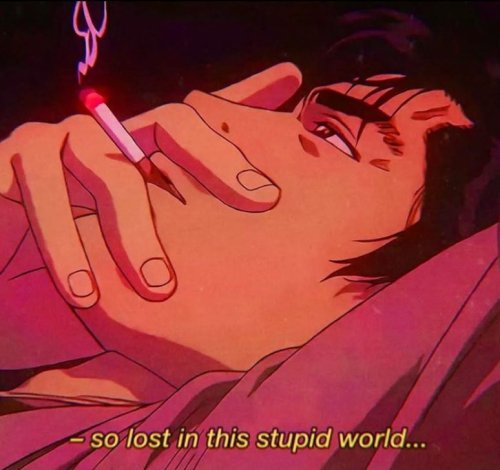“I Am Married And Monogamous. Not Much Of A Bisexual You Say. Yet My Bisexuality Influences My Perception
“I am married and monogamous. Not much of a bisexual you say. Yet my bisexuality influences my perception and my decisions. More than having sexual relations with both genders, bisexuality is a mind frame, a reference point from which to view the world. Being bisexual has more to do with potential than actuality.”
- Amanda Yoshizaki, Bi Any Other Name: Bisexual People Speak Out
More Posts from Bi-supremacy and Others
hi do you have any bisexual graphics? i hope you have a nice day :)
hey 😊 ty, u2. here you go 💜











when will rwrb brainrot end? (spoiler: it won't)


i love asking "is this ok?" when i know full well he likes what i'm doing to him so all he can say is a breathy, open mouthed "uh huh" in response
“Bisexuality… is a permanent state of flux, a liminal space where you can be either/or, but you can also be neither/nor…
You have chosen (or, if you prefer, been chosen by) an unfixed, untitled, and shape-shifting identity. One that by definition resists categorisation. Instead it commands flexibility, restlessness, the endless possibility of change.”
- Chitra Ramaswamy, The Bi-ble: an anthology of personal essays and narratives about bisexuality


“In the 1970s, I saw myself first and foremost as a (radical) feminist. I did not have a primary awareness of myself then as a member of an oppressed sexual minority, which I suppose I have now. I believed that it was important to fight for the rights of all women, of whatever sexual preference, and I believe that the WLM would eventually realise this. I thought that feminists would work together to change the world. Even then, however, the writing was on the wall about the unacceptability of bisexuality. Even respected feminists believed bisexuality to be an exercise in moral and political futility. We were perceived as women who were afflicted  with a form of ‘false consciousness’. This meant that our experience was not ‘real’, not experience with which other women, other feminists, could or should identify with, or develop theory or practice from (the theory and practice of consciousness-raising should have suggested otherwise). We were the exceptions to the feminist rule. One day, it was opined, we would either ‘see the light’ and come out (self-identity) as lesbians - or we’d go back to relationships with men and stop oppressing lesbians by trying to have relationships with them in our unreconstructed state. (Opinion leaned to the view that the latter option was by far the most likely outcome, and maybe because of this, bisexual women were shunned as partners by most lesbians, thus making the theory a self-fulfilling prophecy.) Bisexual women, it was felt, could safely be disregarded.”
- Zaidie Parr, Bisexual Horizons: Politics, Histories, Lives


-
 just-be-yourself71 reblogged this · 1 year ago
just-be-yourself71 reblogged this · 1 year ago -
 bi-supremacy reblogged this · 1 year ago
bi-supremacy reblogged this · 1 year ago -
 bi-supremacy liked this · 1 year ago
bi-supremacy liked this · 1 year ago -
 theradicalwitch liked this · 1 year ago
theradicalwitch liked this · 1 year ago -
 readingbibooks reblogged this · 1 year ago
readingbibooks reblogged this · 1 year ago